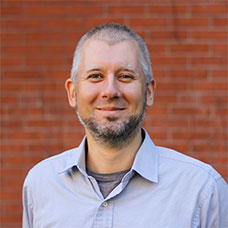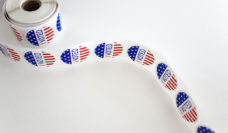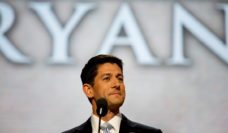Five years ago, PHP announced an essay contest inviting students to imagine they were writing directly to then Speaker of the House Paul Ryan to convince him to make public health a priority. The winner was Paul Shafer, who was completing his doctoral work at the University of North Carolina at Chapel Hill. Three years later he joined the BUSPH faculty. His winning essay focused on the value of prevention, taking the politics out of health, and understanding the social determinants of health.
We’re having another student essay contest (entry details at the bottom!) and invited Dr. Shafer back to judge the contest and talk about what happened in health politics during these last five years.
Who could have imagined these last five years? My winning essay “Put People and Prevention Ahead of Politics” was published the day before President Donald Trump took office, an event that fundamentally changed the landscape for health in the United States. From day one, Trump sought to sabotage the signature policy achievement of his predecessor, President Barack Obama—the Affordable Care Act.
The bully pulpit is a powerful thing, our leaders have the power to shape what the public think and how they engage with government programs in ways that have real repercussions for health—and that was before Covid-19. The Trump administration relaxed environmental regulations, and made it harder for low-income Americans to get health insurance and food assistance—often rewriting policy in ways that were functionally racist upon a long-standing bedrock of structural racism.
We have also faced example after example of racism in policing, with the high-profile killings of George Floyd and Breonna Taylor along with too many others that were just as egregious, yet historically yielding leading to little or no consequences. We need to reimagine structures, talk of “bad apples” and individual solutions aren’t enough.
And then Covid-19 happened, plunging our country and the world into a public health and economic crisis—having to navigate the science and politics of protecting ourselves from a deadly pandemic while helping families stay afloat financially at the same time. This spurred a lot of action, like the Families First Coronavirus Response Act and CARES Act, but with the significant drawback that all of these efforts are temporary—none of it addresses the fundamental causes of income inequality and deprivation in the US.
President Biden won the White House in the 2020 election and made an ambitious down payment on reimagining social policy through the American Rescue Plan Act, like expanding and paying out monthly the Child Tax Credit. But making any of it permanent or pushing further ahead into paid leave, fixing drug pricing, or forgiving student loans through the Build Back Better Act is proving to be a huge battle—not even with Republicans, but within his own party.
Even with something as seemingly intuitive and evidence-based as Medicaid expansion, our politics continue to get in the way of creating universal access to health insurance for low-income Americans. 12 states have still yet to expand despite additional incentives to do so that take nearly all of the costs off of individual states initially.
Take the jump— write, protest, engage—do what you can!
And that is only a brief window into the last five years, with public health being perhaps more visible and important than ever. But we are at a crossroads—we need to be louder, more involved in policy, and create the more just and equitable world we seek.
Winning this student essay contest five years ago was the first time that I had ever written something like this, but now research translation and opinion pieces are a core part of my scholarship. I can’t fathom that those with the expertise, who are doing the research, wouldn’t loudly bang the drum to try to inform policymakers and the public.
This focus on talking about the policy issues I care about with the broader world was in large part because of the relationship I built with former editor-in-chief of PHP, David Jones, who became my colleague when I joined BUSPH in 2019. He was a masterful storyteller and we all miss him terribly. There are a wide range of opinions about the intersection of science and advocacy, we all have to find our own comfort level—but doing nothing shouldn’t really be an option. Take the jump— write, protest, engage—do what you can!
Contest details:
Deadline: Monday, Jan. 3, 2022, 11:59 p.m.
Question: Imagine the next speaker of the U.S. House of Representatives will read your essay. How do you convince them to make public health a priority in 2022? What policy or policies do you recommend they prioritize and why? (800 word maximum)
Include 3 tweets that PHP could share along with your post to help get the next speaker’s attention on social media (tweets don’t count against the 800 word maximum)
Embed references as hyperlinks, not a separate bibliography.
Eligibility: 2021-22 undergraduate, masters, doctoral students in any program of study (ok to be a December 2021 graduate!)
Prize: $250 and publication in Public Health Post
Enter here: You’ll be asked for your contact info, school, expected graduation date, and to upload a document with your essay and the three tweets.
Questions? Contact Managing Editor Teresa Kett twkett@bu.edu
Photo via Getty Images














